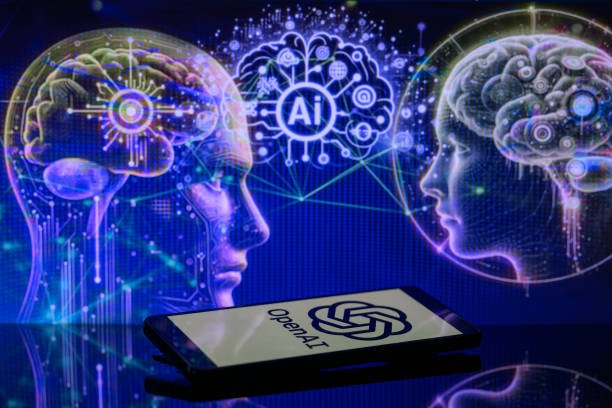AI's impact on human creativity and brain power

The OpenAI logo is being displayed on a smartphone with an AI brain visible in the background, in this photo illustration taken in Brussels, Belgium, on January 2, 2024. (Photo illustration by Jonathan Raa/NurPhoto via Getty Images)
"As AI rises, I fade away," laments the Brain.
The quote personifies the human brain, reflecting its struggle and diminishing role as artificial intelligence continues to take over tasks traditionally reliant on human thought and creativity.
As Artificial Intelligence (AI) continues to gain traction, particularly in academia, the human brain faces a quiet crisis. The growing reliance on AI, especially in educational settings for tasks like solving questions and assisting with research, signals a shift in how we value knowledge. Education is increasingly seen as a mere stepping stone to future employment, losing its deeper purpose of knowledge acquisition and personal development.
Historically, education was meant to cultivate critical thinking, creativity, and knowledge. Sadly, it has become a tool solely for career advancement. Fewer students are engaging in genuine learning, and instead, many turn to AI to do the heavy lifting, relying on chatbots and automated feedback systems to navigate their academic responsibilities. While AI offers convenience and speed, this trend may come at a steep cost.
AI systems provide quick answers, instant assessments, and accessible resources, streamlining education and making it easier for students to bypass critical thinking and problem-solving. But herein lies the issue: as AI takes over, the need for human creativity and independent thought diminishes. Machines, while efficient, cannot replicate the unique creative abilities of the human mind. They cannot think critically, invent, or innovate in the same way that humans can.
As AI becomes more ingrained in our daily lives, we risk eroding essential human skills. Problem-solving, decision-making, and critical thinking—core attributes of human intelligence—are being undermined by our over-dependence on technology. What happens if these systems fail? Could we find ourselves paralyzed, unable to perform even basic tasks without the crutches of AI?
Moreover, AI lacks the ability to understand and feel human emotions. As we lean more on virtual assistants and machines, our social skills and personal relationships are suffering. We are losing the ability to connect on a deep, meaningful level with one another.
The growing reliance on AI is not just a technological issue—it's a philosophical and existential one. If we continue down this path, the brain’s unique capacities may be overshadowed by machines. Someday, humans might find themselves working for technology, rather than technology working for them.
The brain, the source of creativity, rational thought, and imagination, may become obsolete if AI continues its unchecked rise. To preserve the exceptional qualities that define human history and existence, we must exercise control over AI, ensuring that it remains a tool for humans—not a replacement for them.
In the race to innovate, we must not forget the incredible power of the human brain and its irreplaceable role in shaping the world.
(Prakriti Majhi is a 12th-grade Humanities student at Goldengate International College in Battisputali, Kathmandu.)



Leave Comment